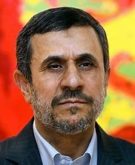Al-Monitor – Iran’s Hassan Rouhani is on a hectic trip to neighboring Iraq, his first official visit to the country since he became president in 2013. A diverse political and economic agenda with implications for Iran, Iraq and the wider region at a critical time has made the state visit highly significant.
At home, Rouhani’s trip served as a point of convergence for rival political factions, which rarely see eye to eye on foreign policy. “Deal in Mesopotamia,” wrote moderate daily Iran, using the ancient name to underline the historical affinity Iran holds with Iraq. “The visit occurs at a time when Iraq has become the focal point of a diplomatic frenzy by the United States, which is planning to make use of Iraq as a platform for extending the ambit of pressure on Iran,” the paper stated.
In early February, US President Donald Trump drew the ire of Iranians when he explained that he wants to maintain a limited American military presence in Iraq to “watch Iran.” But a unified stance from Iraqi politicians in vehement rejection of such plans comforted furious Iranians.
During the first day of his visit, Rouhani’s delegation was busy signing multiple documents aimed at bolstering cooperation on trade, health care, energy, consular affairs and an ambitious railway line connecting the southwestern Iranian town of Shalamcheh to Iraq’s key oil hub of Basra. Another major practical outcome was also a declaration by both sides to live up to their commitments under the Algiers Accords. Since its clinching in 1975, the treaty — which is aimed at resolving border disputes — has witnessed several ups and downs. Four years after its signing, then-Iraqi dictator Saddam Hussein scrapped his country’s adherence to it. The move served in part as the basis for his invasion of Iran in 1980, which led to the eight-year-long Iran-Iraq War.
Foreign Minister Mohammad Javad Zarif, who shared details of the trip on his Twitter account, also announced that the trip will take Rouhani to the holy cities of Karbala and Najaf. The Iranian president is expected to meet with Grand Ayatollah Ali al-Sistani in Najaf on Wednesday — the first time that a sitting Iranian president has met with the supreme religious authority.
With US sanctions reinstated following President Trump’s withdrawal from the Joint Comprehensive Plan of Action, Iran has focused its energy on regional markets. This has been pursued in Iran’s economic diplomacy manifested in recent trips to Iraq by Foreign Minister Zarif and Oil Minister Bijan Zangeneh. Picking up on that, conservative paper Jahan Sanat referred to Rouhani’s state visit as “a giant leap” in bilateral ties, and the moderate daily Hamshahri wrote about Iran-Iraq ties growing “more brotherly than ever.”
Iran’s stepped-up geo-economic strategy also seems to be some muscle-flexing against diverse players that are trying each to grab a share in post-war Iraq. But the most intense tug of war is perhaps taking place between Iran and the United States. “Tehran’s message to Washington from Baghdad,” Donya-e Eqtesad, the leading economic daily, boasted about Rouhani’s trip.
Many Iranian papers also played up the contrast between Rouhani’s Iraq visit with that of his American counterpart. “Trip to Iraq in broad daylight,” wrote moderate Khorasan sarcastically about Trump’s visit to Iraq when — according to ultraconservative paper Kayhan — he landed in secrecy with the “lights off,” unlike Rouhani, who was officially received by Iraqi authorities with the “utmost dignity.” On Iranian state TV, viewers were repeatedly shown similar comparisons that included Trump’s remarks after his Iraq visit as proof of a failed US Iraq policy.
With the near-complete ouster of Islamic State, Iran is also taking credit for much of the relative calm and security in Iraq, as suggested by Javan, a paper close to the Islamic Revolutionary Guard Corps (IRGC). The conservative daily had a message for its rival Reformists, suggesting that Iran’s achievements in Iraq are due to the IRGC’s presence and not necessarily diplomacy pursued by the Foreign Ministry: “The trip by our country’s president is the fruit of sacrifices by martyrs of the resistance.”
“A visit facilitated thanks to the Zulfiqar of Resistance,” Javan’s headline read. “Zulfiqar” is the iconic sword used by Ali ibn Abi Talib, the cousin and son-in-law of Prophet Muhammad, in battles 14 centuries ago. It is also used for Iran’s most prestigious military medal — the Order of Zulfiqar — which has been awarded for the first time in the history of the Islamic Republic by Supreme Leader Ayatollah Khamenei to the commander of the Quds force, Gen. Qasem Soleimani.
In praise of the commander, Khamenei’s official website quoted him as saying that the top general’s service to the Islamic Republic is far from over and that Iran still needs him for years to come.
 Shabtabnews In this dark night, I have lost my way – Arise from a corner, oh you the star of guidance.
Shabtabnews In this dark night, I have lost my way – Arise from a corner, oh you the star of guidance.


